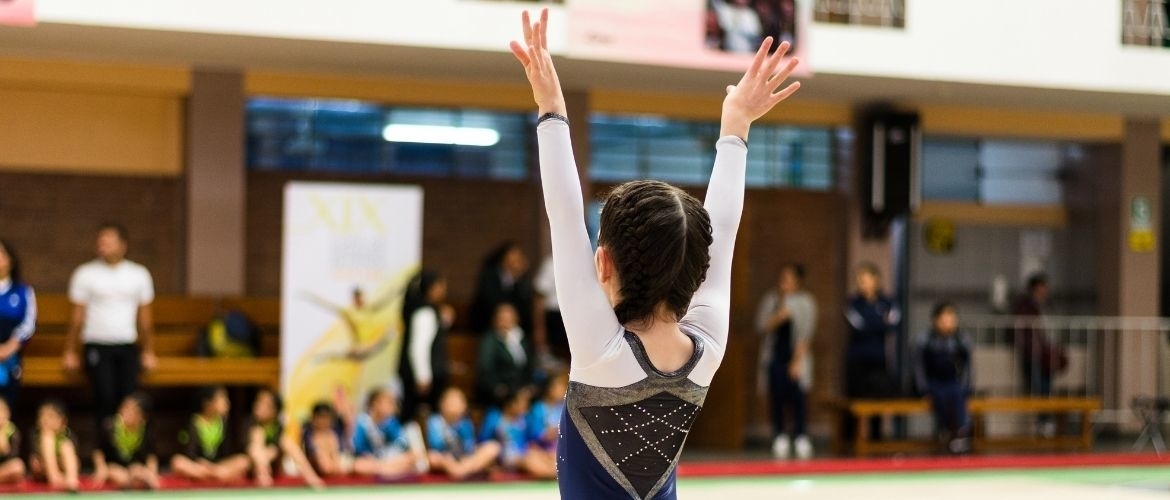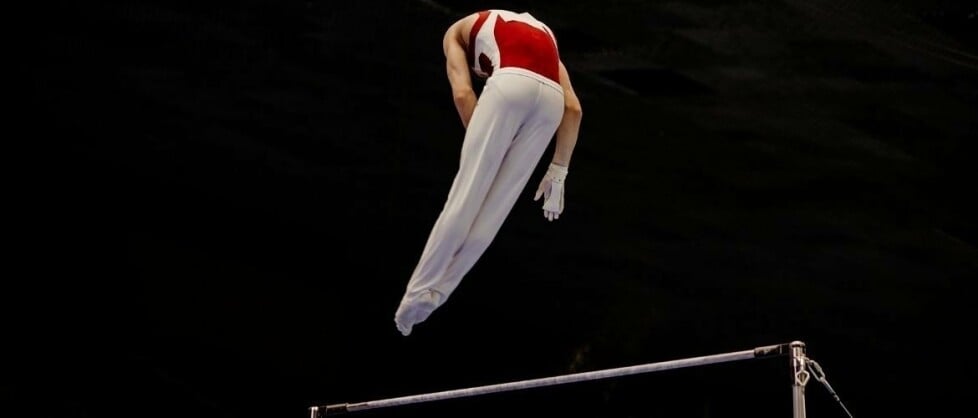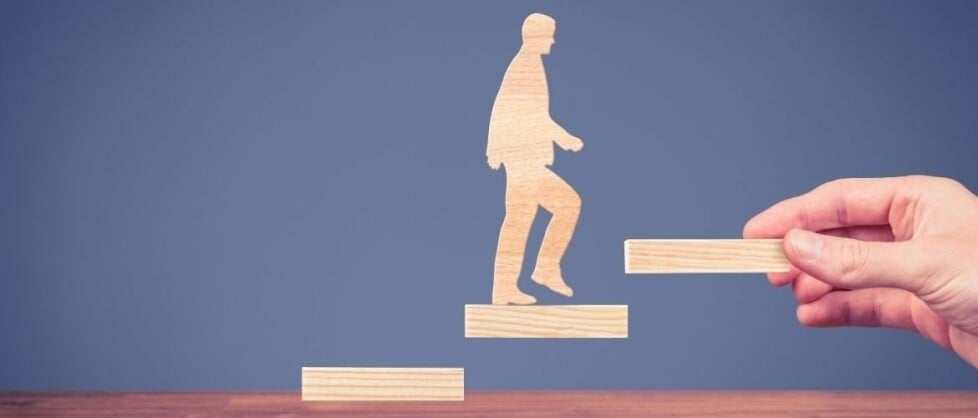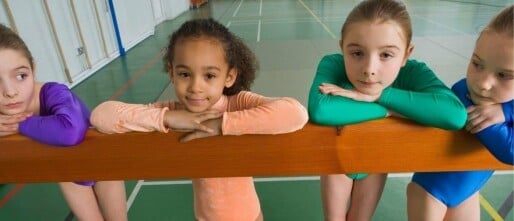Competition nerves….. With trembling legs and shaking sweat hands, you stand next to the beam, waiting to report to the jury. The jury is still busy judging the exercise of the gymnast in front of you. She did it so neatly and gracefully, and she didn’t fall off the beam either. You can’t do it that well,” you tell yourself with a voice full of nerves. You’re terribly worried about the cartwheel, which you want to keep standing. That went really badly in the last training session before the competition, when you only managed to do it three times. Oh, the jury is ready. Oh dear, now I have to go. How did my exercise start again…?
Do you recognise those nerves rushing through your body? Are you just as worried as in the example above? Then we have listed a few tips below to help you get your competition nerves under control.
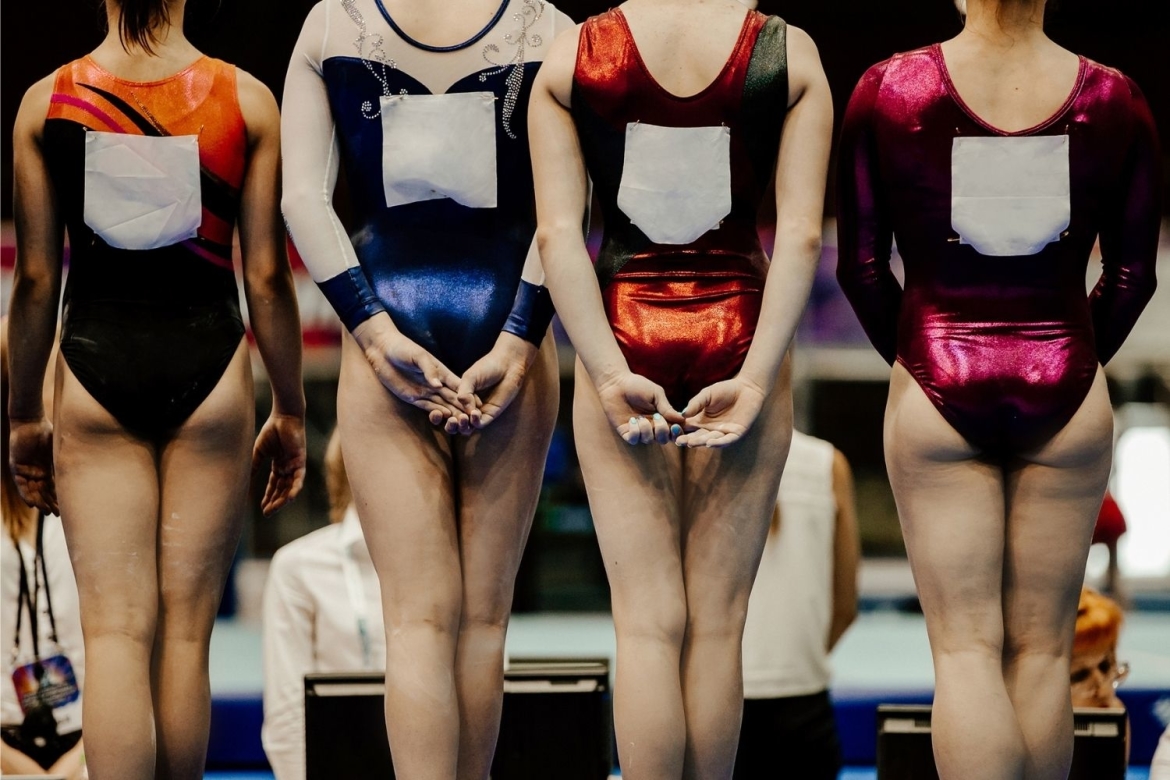
Good preparation is half the battle
Make sure your physical and mental condition is on point. A good physical condition: coordination, flexibility, endurance, strength and speed are prerequisites for being able to perform the elements well and without injury. If you know that you have prepared yourself optimally for this, you will experience fewer competition nerves on the competition floor.
Practise in competition situations
Train your entire competition exercise from at least two weeks in advance so that you are optimally prepared. You want to avoid performing elements only the week or training before the competition, as this increases the pressure and competition nerves enormously. You also need to have repeated an element sufficiently to be able to perform it in more stressful situations as well as in training. Try to simulate an entire match with your group mates. Look at each other’s exercises, give tips and tops, which will increase your confidence in your competition exercise.
Practise against the competition nerves in different situations
Perform your competition exercises in silence or with distracting music or other distractions. Also practice on different beams/uneven bars or even training halls. Variation is the key so that you can perform your competition exercises under all circumstances without causing extra stress and nerves.
Believe in yourself
The degree of self-confidence is related to the experience of anxiety, the degree of motivation and concentration. For example, someone with ”sufficient” self-confidence (not too much, not too little), suffers less from anxiety, is more motivated and has better concentration.
Self-confidence can be increased by keeping track of the goals you have achieved. You can also increase your self-confidence by using mental skills, such as learning by visualisation and observing others. Often the focus is on the physical execution of an element or competition exercise, but try to visualise it as well. The third way to increase your self-confidence is the ”verbal persuasion”. Compliments, positive feedback and positive self-talk increase your self-confidence. As mentioned in the example above, “you can’t do that well” is not really a good self-talk before you start your exercise.
Breathing exercises/shifting focus
Try to shift your focus to your breathing. Visualise how your breath enters your lungs through your nose and leaves them on the way out. In this way your ”negative thoughts” will not get space and you will reduce the stress reaction of your body (increased heart rate, breathing etc.).
Exercises
Do you want more exercises to control your nerves? Or would you like to know how other gymnasts deal with these nerves? Then check out the gymnasts’ platform of Gymnastics Tools!
Burton, D., & Raedeke, T. D. (2008). Sport psychology for coaches. Human Kinetics.

